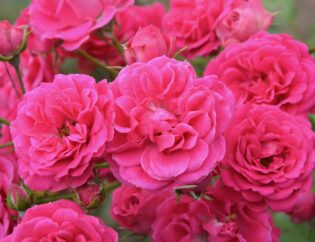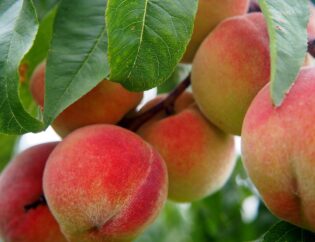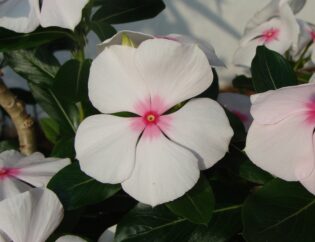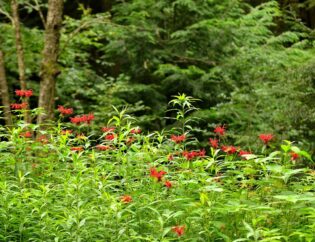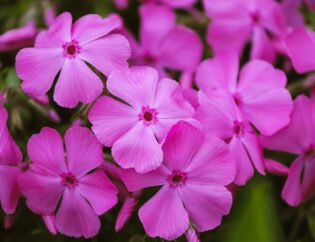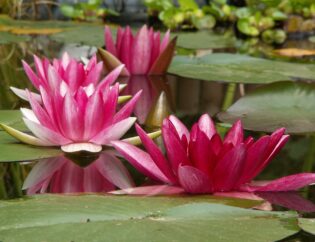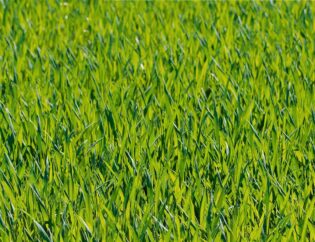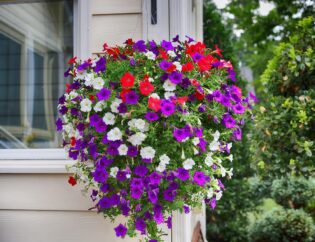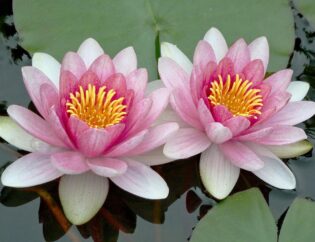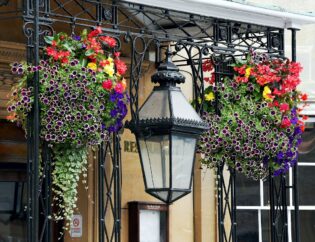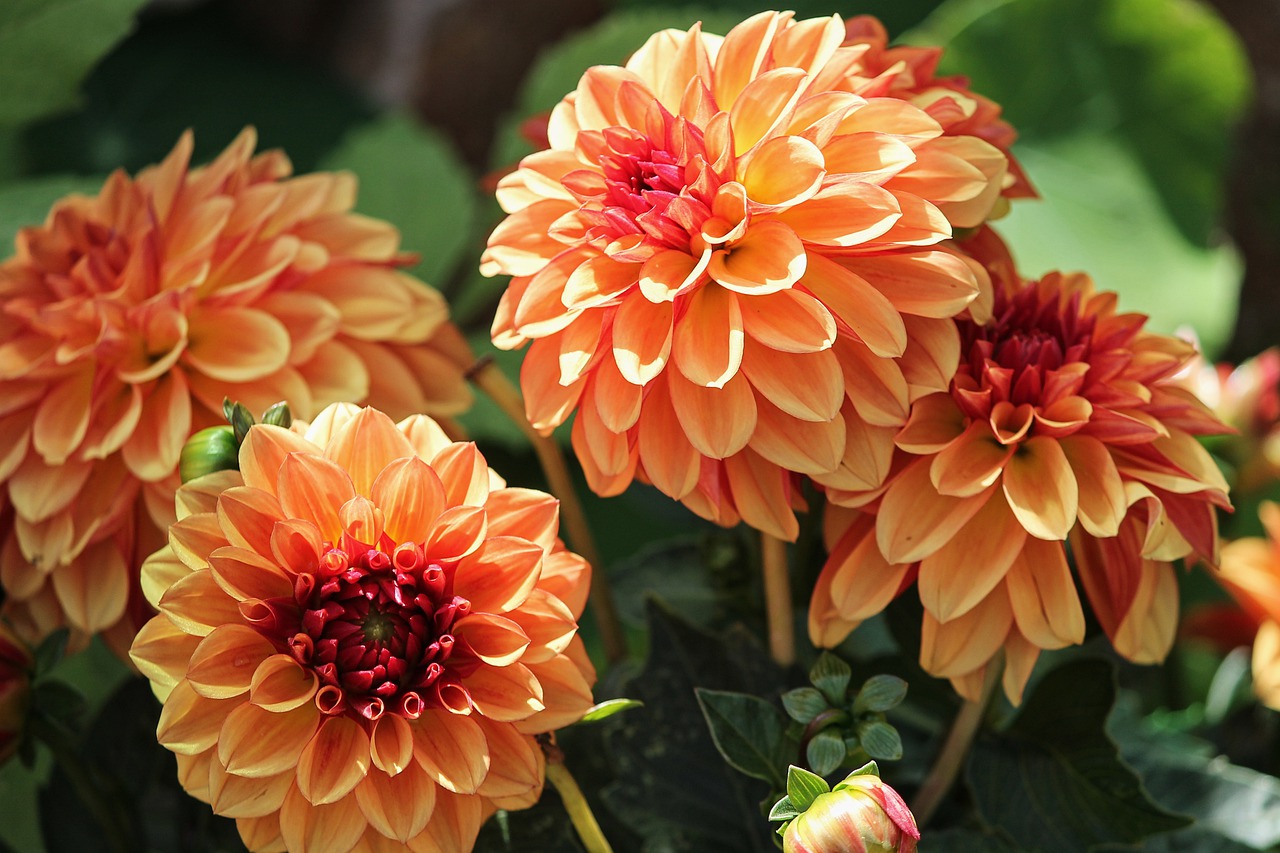
Nothing ruins the tranquility of a stroll through the vegetable garden quite like insect damage. And they don’t stop at the tomatoes and green beans! Every plant, from Bermuda grass to ornamental shrubs to boxwood is at risk. Fortunately, knowing a few organic pesticides now could save time and money later.
Let’s take a look at what every Atlanta homeowner should know to protect their landscaping investment.
How to Use Organic Pesticides
When using any product on your plants, it’s important to start with some basic tips for success. Always read the product label in its entirety and follow safety instructions. Some products should not be used on plants that will be eaten, for instance.
Further, always spray a test patch before spraying the entire plant. Some species will wilt and die-back or are otherwise sensitive. A test branch is easy to cut away if things go poorly.
Additionally, as a general rule, sprays should be applied when bees are less active to protect bee populations and fruit production in your area. Early morning or evening is best.
And those times of day are better for the plants, too! Direct sunlight can scorch leaves when oils, soaps, and products are still wet. So, apply foliar sprays in the shade and let them dry thoroughly before sun exposure.
For small potted plants, it’s easy to move them to a shaded location. But for large containers or those planted in the ground it means planning spray tasks for dusk, dawn, or shaded times of the day. Rainy and windy weather are also to be avoided.
Continuing, it is important to know that most pesticide applications are not one and done. Because the egg, larvae, and adult stages of many insects are not impacted the same, repeated doses on a schedule are typical.
Lastly, just because an organic pesticide is certified organic does not mean it is harmless to people and pets. They are still chemicals that should be handled with care. For those with landscape ponds and water features, be aware that fish and amphibians like frogs are especially sensitive to many pesticides, including organic ones.
Organic Insecticidal Soap
Insecticidal soap is made up of potassium or sodium salts combined with fatty acids. It may also be called potassium salts of fatty acids or soap salts.
This option is one of the safest organic pesticides available. The soap kills insects with soft bodies on contact (doesn’t work if they have a hard shell) but is considered safe for use around pets or other animals when used as directed. Note: once the soap has dried, it will no longer work.
It may damage some types of plants, particularly when it’s hot or the plant is stressed. Check specific product labels for sensitivity.
Neem Oil
Neem oil comes from the seeds of the neem tree. This organic pesticide option works as a repellent to chewing and sucking insects. Moreover, it also interrupts the hormone systems of immature insects, thus preventing them from growing to maturity. Neem oil works well on caterpillars, aphids, whiteflies, thrips, and mealybugs.
It’s great for being non-toxic to humans, but pets should be kept away until the sprayed plants have dried.
It does wash away in the rain and breaks down in sunlight. Homeowners should check frequently for effectiveness and reapply as necessary.
Organic Horticultural Oil
Horticultural oil is highly refined petroleum oil. Mix it with water and spray on the affected plants.
The oil works well to fight soft-bodied insects like aphids who breathe through their skin. The oil coats their skin and suffocates them.
It has low toxicity to humans and pets and leaves no toxic residue. However, it can burn the leaves of some plants. Additionally, it should not be used in very hot or freezing conditions.
Pyrethrins
Pyrethrins are powders derived from a type of chrysanthemum flower. When dusted on the leaves of a plant, it poisons insects, killing them shortly thereafter.
The powder degrades quickly (within a day). It has low toxicity to humans and animals, but indiscriminately kills insects, including beneficial ones. It should be used sparingly and never around bodies of water containing fish, as it is toxic.
Bacillus
Bacillus thuringiensis (Bt) is a family of bacteria that can be used as an organic pesticide. The insects eat the bacteria, which then damage the digestive tract. The illness causes them to stop eating and death comes from starvation.
There are over 80 strains of the bacteria and they are very host specific. Homeowners must choose the correct strain to treat their infestation.
Bacillus thuringiensis kerstaki
Dealing with a caterpillar infestation? This strain is effective at targeting these little buggers. Remember that it will take a few days for the critters to die from the effects.
Bacillus thuringiensis israelensis
Homeowners can use this strain when dealing with annoying mosquitos. It’s a good way to get rid of these highly irritating insects without harming people, birds, bees, or pets.
Diatomaceous Earth
Diatomaceous earth is a powder made from silica found in minuscule aquatic algae (diatoms). It can be dusted on plants or applied as a spray. It works by sucking the moisture out of the insect’s exoskeleton so that it shrivels up and dies.
Unfortunately, it becomes less effective when damp and homeowners should take care not to breathe the dust when applying it.
Organic Fungicide Options
Insects aren’t the only reason plants can be under the weather. Sometimes, homeowners should be reaching for an organic fungicidal option instead.
Copper Based
Copper sulfate and other compounds are quite effective at controlling various fungal and bacterial diseases. Unfortunately, it is toxic to fish and humans and homeowners should use it with care.
Sulfur Based
Homeowners can use lime sulfur products in the dormant season to kill off black spot, powdery mildew, and other fungal diseases. It is caustic to the point that some products have been discontinued for residential use. Use with care.
Potassium Bicarbonate
Potassium bicarbonate is often combined with horticultural oil or another substance to more easily cover the leaves. It works well when used early for fighting off an infection of some types of leaf fungi and is safe to use for vegetables.
Preventing Pests
Of course, one of the best strategies for getting rid of pests is to not let them take hold in the first place. Here are several ways that homeowners can prevent infestations before they start.
- Give plants room to breathe by not planting them too closely together
- Remove dead vegetation that can offer the insects a home
- Water in the morning so the plants dry out during the day and aren’t wet all night long
- Water appropriately— overwatering and underwatering both cause problems
- Attract insect predators to the garden (toads, frogs, birds, etc.)
- Choose hardy, native perennials that do well in your area
- Keep up with lawn care and maintenance
Rather Keep Your Weekend?
We understand that not everyone is as excited about lawn care as us and taking care of the grass can kill your weekend! If you’d prefer to hire it out and get it off your plate, look no further.
Our team here at Atlanta Turf & Tree has over 35 years of combined experience in the industry and has been making yards like yours beautiful since 2007. Contact our landscaping services experts and get your landscaping project off the ground today!
